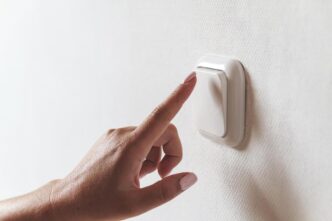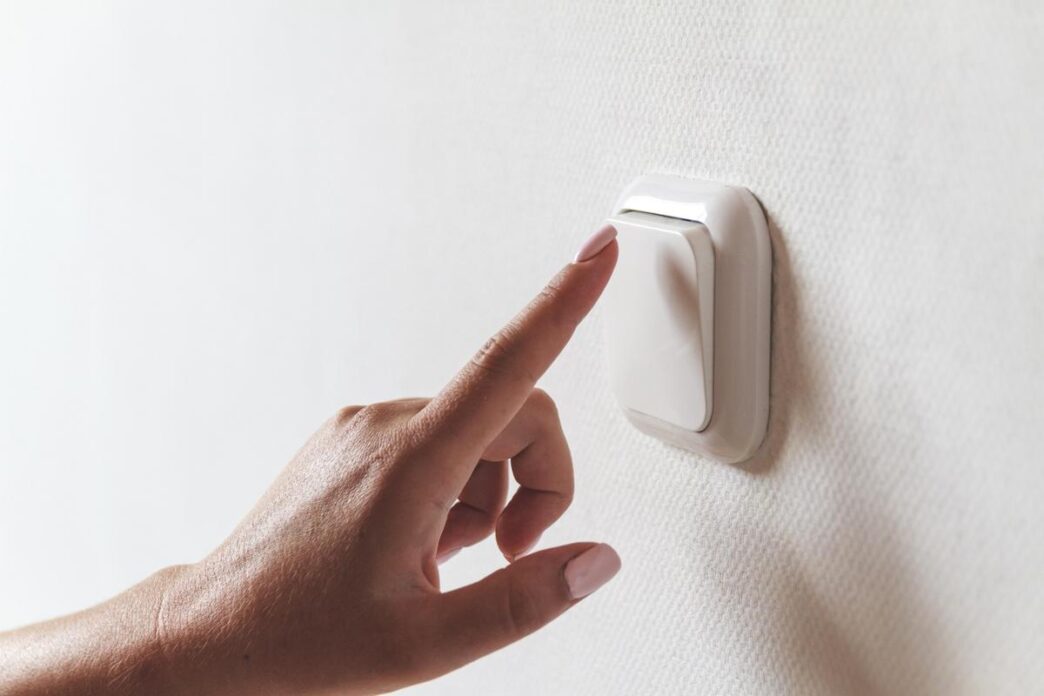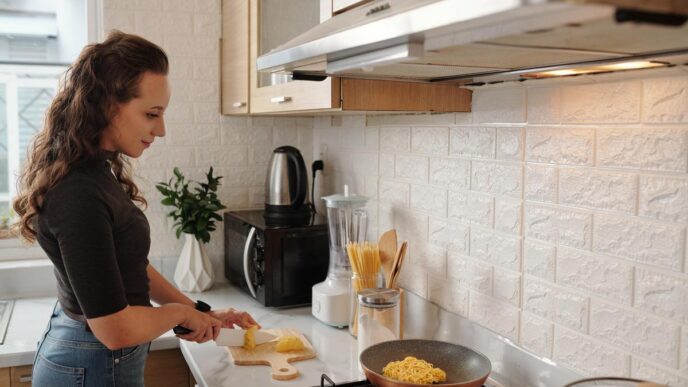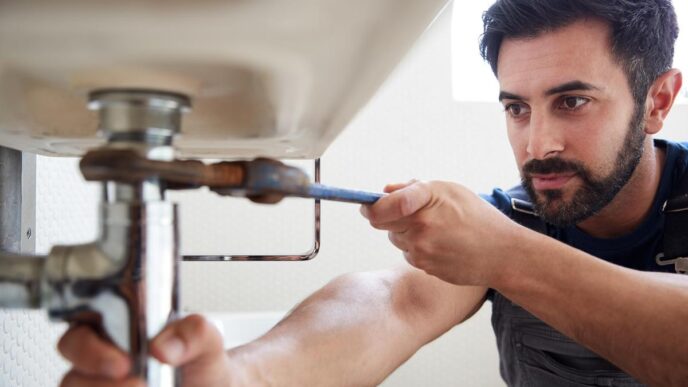Key Takeaways:
- Smart outlets allow device control via phone/voice, improving home efficiency.
- They help manage energy use, save money, and offer scheduling features.
- Top smart outlets include Leviton D215P-2RW, TP-Link Kasa Smart Wi-Fi Plug Mini, and GE Cync.
- Outlets fit different needs—HBN Smart Plug (for dual devices), Emporia Smart Plug (energy tracking).
- Smart outlets integrate into smart home systems, compatible with Alexa, Google Assistant, and HomeKit.
- Benefits include energy tracking, automated tasks, and easy installation.
- Installation can be DIY or professional; each has pros and cons.
- They're a good long-term investment, aiding in energy conservation and cost reduction.
- Safety features include child safety covers, surge protection, and energy monitoring.
Thinking about upgrading your home with smart outlets? Let me show you why it's worth it. Smart outlets aren't just fancy tricks; they redefine convenience and energy use. Imagine controlling all your plugged devices from your phone! Not only do they save energy, but they can also enhance your home's value. Whether you do it yourself or call in the pros, smart outlets are a smart investment. Let's explore why this upgrade makes sense for you.
What Are Smart Outlets and Why Are They Important?
Smart outlets are a big upgrade from traditional ones. They let you control devices with your phone or voice commands. Traditional outlets simply provide power but have no control features. Smart outlets make home life easier and more energy-efficient.
With smart outlets, you can schedule and manage power use. This reduces unnecessary electricity use. For example, you can set a lamp to turn off during the day. This setup helps save energy and money.
Several smart socket types are available for home use. The Leviton D215P-2RW is a top choice. It's easy to set up and works with many smart home systems. The TP-Link Kasa Smart Wi-Fi Plug Mini is also great. It supports scheduling and is perfect for Alexa or Google Assistant users. The GE Cync offers a user-friendly app, making control smooth and easy.
Different smart outlets fit different needs. For two-device control, HBN Smart Plug is useful. It lets you control two devices from one spot. The Emporia Smart Plug excels in tracking energy use. It helps users see how much energy each device uses.
Smart outlets transform homes into smart home ecosystems. They let you enjoy scheduling, remote control, and energy use management. To learn more about choosing the best smart outlet, visit this link. Each socket type has a unique benefit, making home management easier and more efficient.
How Do Smart Outlets Work in a Smart Home System?
Smart outlets act like trusty sidekicks in your smart home. They let you control your devices with ease. You can handle gadgets even when you’re not home. How awesome is that? The magic happens through wireless technology. Smart outlets send signals to your main smart home system. Popular options include Alexa and Google Assistant.
Want to control devices remotely? You can use an app on your phone. Many smart outlets connect to these apps easily. The TP-Link Kasa Smart Wi-Fi Plug Mini is one example. It lets you set schedules for your devices. Imagine lights turning on when you arrive home.
When thinking about compatibility, ask yourself, "Does this outlet work with my current system?" The best ones, like Leviton D215P-2RW, work with many systems. They connect with Alexa, Google Assistant, and Apple HomeKit. This makes them easy to add to your setup.
Smart outlets make your home life easier. They blend into your smart home network, allowing you control and flexibility. Smart outlets are small but powerful tools. They fit alongside other devices to create a harmony of technology.
What Are the Benefits of Installing Smart Outlets?
Smart outlets bring the magic of home automation right to your fingertips. They let you control lights and devices using your smartphone or voice commands, which makes life easier and saves time. When you use smart outlets, you step into the world of a connected home.
But how do smart outlets contribute to home automation? They link to your smart hub and allow you to automate everyday tasks. Imagine your lights turning on when you get home or your coffee machine starting at wake-up time. These small changes create a seamless, connected home experience.
What about energy-efficient features? Smart outlets track and manage energy use to cut down wasted power. They allow you to schedule when devices turn off, which helps save energy and money. Some like the Emporia Smart Plug offer detailed energy usage reports, which is perfect for keeping an eye on what uses the most power.
Let’s talk cost and installation. The smart outlets range in price from $10 for a basic model to $30 for a more advanced one. Installation is usually simple—you just plug into a wall socket and set up with an app. This process makes them accessible for everyone, even if you’re not tech-savvy.
Smart outlets are practical and helpful in many ways. For users who value ease of use, the GE Cync Smart Plug provides a smooth setup and a simple app. This makes managing your devices stress-free.
Upgrading to smart outlets transforms your home into a friendly, automated space. With smart outlets, enjoy an upgrade that not only keeps up with tech trends but also makes everyday life easier and more efficient.
Should You Opt for DIY or Professional Smart Outlet Installation?
When upgrading your home's outlets to smart ones, you face an important choice: do it yourself or hire a professional. Let's explore both options.
DIY Smart Outlet Installation: Doing it yourself offers no installation fees, but you need some skill. You should feel comfortable handling wiring and follow safety guides. One mistake might lead to a costly fix.
Pros of DIY: You save on labor costs and learn useful skills. You control the schedule.
Cons of DIY: Risks include incorrect wiring and potential safety hazards. Keeps in mind, without enough knowledge, problems might arise later.
Professional Smart Outlet Installation: Hire experts if you lack time or confidence. They guarantee flexibility, safety, and correct installation.
When Professional Installation is Better: If you live in an old house, wiring might be complex. Professionals have tools and expertise to handle these issues safely. Also, if your project involves many outlets, expert installers could save time and headaches.
Key Considerations: Before you decide, assess your comfort with tools and wiring. Factor in the costs involved in professional help against your time and skill level. Your home's wiring age and condition matter, too. Lastly, consider how upgrading aligns with your home’s smart system goals.
Upgrading to smart outlets requires careful thought. If you have a basic understanding and don't mind a little DIY project, it can be manageable. But for many, the peace of mind and safety of having a professional installation might be worth the cost. Check here for extra help on DIY and professional installations.
Are Smart Outlets a Good Long-Term Investment for Your Home?
Smart outlets can improve a home's value and energy efficiency. They make it easy to control electricity use. By managing energy well, smart outlets help lower electricity costs over time. This is because you can turn devices on and off from your phone.
The financial impact of smart outlets can be significant. By using them, you can reduce wasteful energy use. For example, they can turn off lights when no one is home. This saves money and lowers energy bills.
Managing energy consumption at home becomes simpler with smart outlets. They allow you to schedule when devices work. For instance, you might set your coffee maker to start before you wake up. This way, you keep control of your home's energy use.
Choosing the right smart outlet is important. Some brands, like Leviton, offer broad compatibility. They work with many smart home systems, like Alexa and Google Assistant. Understanding these features helps you make the best choice for your needs.
What Safety Features Should You Consider When Choosing Smart Outlets?
Safety is key when picking the right smart outlets for your home. One important feature is child safety. Some outlets have sliding covers that stop curious kids from sticking things inside. This stops accidents and keeps little fingers safe.
Surge protection is also a crucial feature. It shields devices from sudden power spikes, which can otherwise cause harm. When power surges happen, it can damage or destroy electronics without good protection.
Smart outlets are great for home security as well. With smart outlets, you can control lights when away. This makes it look like you are home, which can deter break-ins.
Another feature to check is energy monitoring. Some smart outlets let you track how much power gadgets use. This can help manage which devices draw too much power and lessen the risk of overheating.
Now, does using smart outlets mean they are foolproof? Watch out for safety misconceptions. Some believe all smart outlets have surge protection, but not all do. Always check the product details to know what protection it offers.
Choosing smart outlets wisely can enhance both safety and convenience at home. For more insights, click here.
Conclusion
Smart outlets are your gateway to a connected home. They stand apart from regular outlets by offering enhanced convenience. With them, you can save energy, automate tasks, and manage devices remotely. Various types cater to different needs, and they integrate well with existing smart home setups. Choosing between DIY or professional installation impacts your investment. Consider the cost, energy savings, and safety features when upgrading. Smart outlets not only boost home value, but also help reduce electric bills. Keep safety top of mind while enjoying a smarter, more efficient home.













